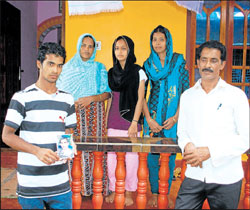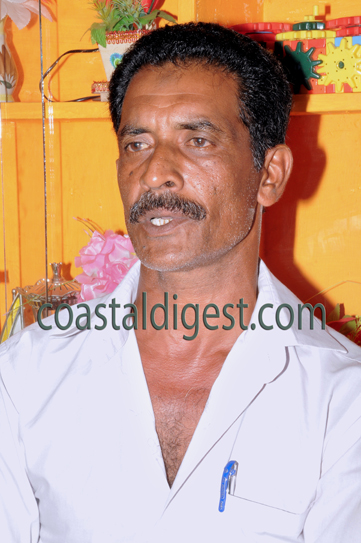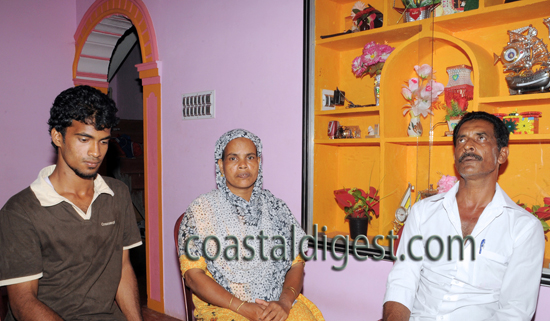Mangalore, July 21: The Kerala High Court judgment ruling that the families of the victims of the Air India Express crash in Mangalore Mangalore last year are entitled to a minimum individual compensation of Rs 75 lakh has evoked a sense of relief among the the relatives of those who died in one of the worst air disasters in India's aviation history.
Welcoming the decision, Mohammed Beary, president, Mangalore Air Crash Victims' Families Association, said, the counsel of Air India and senior advocate H.D. Nanavati had been staunchly opposing our claim for awarding compensation as per the provisions of the Montreal convention.
“Nanavati had also ridiculed the then aviation minister Praful Patel by saying that he did not have legal knowledge. The Kerala High Court judgment will be a boost for our fight against the discriminatory payout policy pursued by the Air India and their agencies,” Mr Beary said.
However, Mr. Beary was quick to add that“A person's life can't be equated with money.”
“We have also approached the Swedish lawyers seeking compensation on par with international standards. We have given all our document s to the reputed legal firm. One should also bear in mind that the when we filed a writ petition in the High Court through, it was yet not confirmed that the tragedy was a result of pilot error,” he noted.
When asked about the possibility of Air India filing an appeal in the High Court, Mr Beary, said we are prepared to fight against such an appeal also.
“Our lawyers —Urban Olson and Stephen Erikson - both from Stockholm in Sweden, will hold negotiations with a London insurance company with regard to the compensation of 60 crash victim families. The meeting will take place on July 28. This will be followed by two more rounds of negotiations. We are hopeful of securing justice,” Mr. Beary said.
Meanwhile, Mangalore Air Crash Victims' Families Association (formed to help the victims' kin) Legal Advisor Varadaraj K termed the verdict as landmark and said the decision would not only help the family members of May 22, 2010, crash victims, but would also serve as a future reference.
Recalling the “callous attitude” of the advocates of Mulla & Mulla (the legal counsels for Air India), who offered only Rs 35 lakh compensation to the kin of Mohammed Rafi of Kasargod, a victim of the air crash, Varadaraj said the Air India counsels had in fact forced Rafi's father Abdul Salam to approach the High Court that ruled in favour of Rafi, thereby helping all the victims.
Counsels for Air India had fixed Rs 30 lakh for women, Rs 25 lakh for children and Rs 35 lakh for men killed in the crash.
Prof John D'Silva, Principal, St Aloysius PU College, who also refused to accept the meagre compensation offered by Air India for his 29-year-old relative Ullas Joseph D'Silva's death, said: “They (Air India counsels) can't bargain or fix a price for a human being based on his present salary, when there is every chance of him getting a promotion in his career.” Ullas was employed as an accountant in a five-star hotel in West Asia.
Air India reaction
Meanwhile Air India has clarified that the airlines was not connected with the issue of compensation and the issue was being handled by the insurance companies.
When contacted, Chellam Prasad, Air India (Mangalore)?Station Manager, said the national carrier was awaiting a copy of the Kerala court judgment. He said the authorities would decide the future course of action after obtaining the verdict copy.
Victim's father slams AI
“I had no other option but to approach the court when the advocates (appointed by Air India) cared a pin for our pleas and fixed a price for my son's life,” Abdul Salam said.
“Your son was earning Rs 25,000 in Sharjah. So, we will give Rs 25 lakh as compensation,” Salam cited Mulla &?Mulla chief H?D?Nanavathi as telling him when he approached the Air India counsels for more compensation.
“I told them I would give the legal counsels Rs 50 lakh if they gave me back my son,” Salam said.
So far, the Air India has settled only 55 cases (52 dead and 3 survivors) while 68 persons (47 in Mangalore and 21 in Dubai) have approached the foreign law firm.

Petitioner Abdul Salam (extreme right), his son Abdul Nasir with a photo of Mohammad Rafi, who was killed in Mangalore air crash








Comments
Add new comment